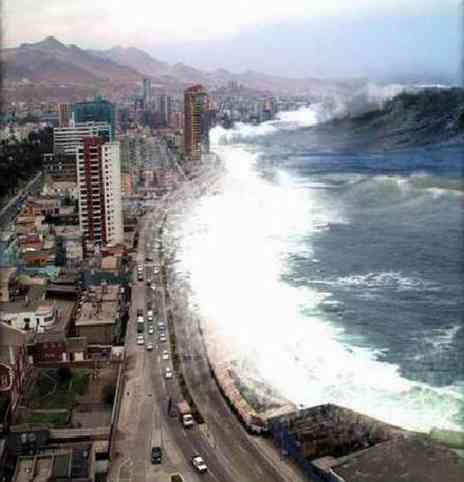
http://news.independent.co.uk/environment/article2116874.ece
'If we fail to act, we will end up with a different planet'
By Steve Connor, Science Editor
Published: 01 January 2007
One of the world's leading experts on climate change has warned that the Earth is being turned into a "different planet" because of the continuing increase in man-made emissions of greenhouse gases.
In an interview with The Independent, Jim Hansen, who was one of the first scientists to warn of climate change in scientific testimony to the US Congress in 1988, claimed that we have less than 10 years to begin to curb carbon dioxide emissions before global warming runs out of control and changes the landscape forever.
Last year, Dr Hansen, director of the NASA Goddard Institute for Space Studies, part of
Dr Hansen said: "We just cannot burn all the fossil fuels in the ground. If we do, we will end up with a different planet. I mean a planet with no ice in the Arctic, and a planet where warming is so large that it's going to have a large effect in terms of sea level rises and the extinction of species."
Positive feedbacks in the high latitudes of the northern hemisphere are already starting. One is the loss of sea ice, which means less sunlight and heat is reflected back into space, making the Arctic even warmer. Another is the release of methane from the frozen tundra. Methane gas is 20 times more potent than carbon dioxide as a greenhouse gas, Dr Hansen said.
"The greatest concern is that positive feedbacks at high latitudes do in fact seem to be coming into play. We can't just let those feedbacks get out of control or we will have passed a tipping point," he said.
"If we go another 10 years, by 2015, at the current rate of growth of CO2 emissions, which is about 2 per cent per year, the emissions in 2015 will be 35 per cent larger than they were in 2000. But if we want to get on a scenario that keeps global temperature in the range that it's been in for the last million years, we would need to decrease the emissions by something of the order of 25 per cent by the middle of the century, and by something like 75 per cent by the end of the century."
The continuing rise in carbon dioxide emissions and average global temperatures is on schedule to cause the eventual collapse of the ice sheets on both
"If we follow business as usual, and we don't get off this course where year by year we're getting larger and larger emissions of CO2, then we'll have large sea-level rises this century and I think that will become more apparent over the next decade or two," Dr Hansen said.
"The last time it was 3C warmer, sea levels were 25 metres higher, plus or minus 10 metres. You'd not get that in one century, but you could get several metres in one century," he said.
"Half the people in the world live within 15 miles of a coastline. A large fraction of the major cities are on coastlines. And the problem is that once you get the process started and well on the way, it's impossible to prevent it. That's why we need to address the issue before it gets out of control."
Many species of animals and plants are not going to cope with rising temperatures, which are causing isotherms - lines of equal temperature - to travel polewards at the rate of 50km a decade, compared with the average rate of species migration of 6km per decade.
"Those species at high latitudes have no place to go to. Many of them will be in trouble. They will effectively be pushed off the planet," Dr Hansen said.
Dr Hansen, who last year received the WWF Duke of Edinburgh Conservation Medal, said that although he is now free to speak out, many other

No comments:
Post a Comment